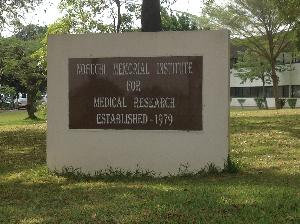The Embassy of Japan has signed a grant contract with the Noguchi Memorial Institute for Medical Research (NMIMR) University of Ghana, for the procurement and installation of an incinerator at the Institute for proper laboratory waste management.
The grant, funded by the Government of Japan under its Assistance for Grassroots Human Security Project (GGHSP) would help reduce the potential infectious properties, toxicity, hazardous, and volume of medical waste especially in this era of the COVID-19 pandemic.
The project is supported with 140,000 US dollars.
Mr Hiromoto OYAMA, the Counselor and Deputy Chief of Mission, during the ceremony, said protection and empowerment were key components of human security.
“As the precious staff of the Noguchi Institute are facing the risk of the health hazards caused by improper waste disposal, it is our pleasure to provide protection through the procurement and installation of an incinerator in line with such key policy of Japan,” he said.
Mr Hiromoto indicated that this project of the procurement and many other GGHSP projects across the country demonstrated the fruits of a close friendship between the people of Japan and the people of Ghana for over six years.
He said based on this friendship, the Governments of Japan and Ghana have been collaborating in various areas of development, including the health sector. “Japan’s support to and through the Noguchi Institute over the years is one of such good examples and it makes us proud, especially as we are tackling the challenges of COVID-19 together,” he stated.
The Counselor called on stakeholders to ensure the proper use and maintenance of the incinerator when installed, adding “your friends in Japan expect you to value their gift of goodwill to you”.
Mr Hiromoto said, “We will like to see you effectively use and maintain the facility so that it will continue to serve the need of proper waste management over the years to come.”
Professor Abraham Kwabena Anang, the Director NMIMR University of Ghana, speaking on the mandate and achievements of the Institute expressed appreciation to the Counselor for the project adding that it was of standard and fit for purpose.
He said the project when successful would ensure that waste that is generated from biological, dangerous pathogens among others would be adequately handled to enhance biosafety, bio-security as well as global health security.
He pledged that the Institute would take good care of the incinerator when installed.
Source: GNA
 Home Of Ghana News Ghana News, Entertainment And More
Home Of Ghana News Ghana News, Entertainment And More





